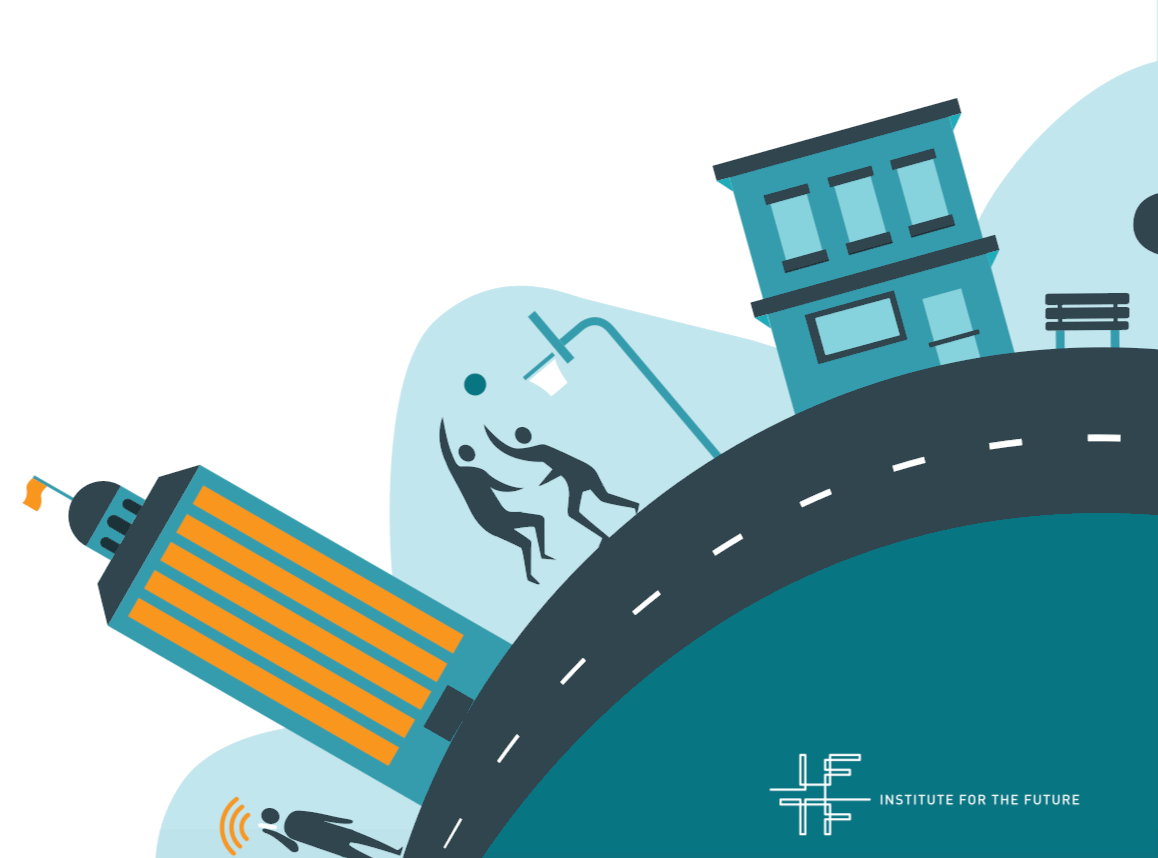If our every click boosts the profits of Big Tech, how should the people and communities benefit? UBI? UBA? Small Tech?
Very useful and interesting idea from the renegade Greek biker economist, Yanis Varoufakis, in his Project Syndicate column. To put it succinctly:
In using Big Tech’s services, we manufacture a portion of its capital in real time. Property rights over that portion – for all of us, rather than for any of us – should be the basis of a universal basic income.
Isn’t this the truth? Varoufakis develops the idea below:
When James Watt built one of his famed steam engines, it was his creation, his product. A buyer who put the engine to work in, say, a textile factory could think of his profit stream as a just reward for having taken the risk of purchasing the machine and for the innovation of coupling it to a spinning jenny or a mechanical loom.
By contrast, Google cannot credibly argue that the capital generating its profit stream was produced entirely privately. Every time you use Google’s search engine to look up a phrase, concept, or product, or visit a place via Google Maps, you enrich Google’s capital.
While the servers and software design, for example, have been produced capitalistically, a large part of Google’s capital is produced by almost everyone. Every user, in principle, has a legitimate claim to being a de facto shareholder.
Of course, while a substantial part of Big Tech’s capital is produced by the public, there is no sensible way to compute personal contributions, which makes it impossible to calculate what our individual shares ought to be. But this impossibility can be turned into a virtue, by creating a public trust fund to which companies like Google transfer a percentage – say, 10% – of their shares.
Suddenly, every child has a trust fund, with the accumulating dividends providing a universal basic income (UBI) that grows in proportion to automation and in a manner that limits inequality and stabilizes the macro-economy.
Of course, this presumes a nation-state (or other powerful jurisdiction - maybe the European Union) with enough concerted democratic and political will-power to compel such a change in fiscal and trading conditions.
At A/UK, we like to assume that there is no party-political unicorn coming over the hill to save us all. Or if they are, then they should meet an already capable, confident and future-minded citizenry. So what can localities do to create a civic demand for such a harnessing of their interactions with tech?
There’s something in the area of local digital systems (or other networks of value) which might begin to answer this. Earlier in this piece, Varoufakis says the impetus for his scheme is the difficulty of taxing every one of these interactions, or robots themselves. But regard the resource that our digital labours produce as a Universal Basic Asset (UBA), and we might get the best of both worlds - that is, the wonderful utility and flexibility of these systems, but also a fair distribution of the wealth they generate.
A piece in Fast Company earlier this year holds out that blockchain (or some other robust and secure digital system) could make UBAs into LBAs (Local Basic Assets):
Blockchain technology could offer a way to divide of publicly-owned infrastructure so it’s genuinely publicly-owned. We could issue tokenized securities in the assets around us giving everyone a stake in their environment. Then they could trade those tokens on exchanges, like they were cryptocurrencies, or use the tokens as collateral on loans.
For example, if cities and towns develop new solar-powered micro-grids, shares in the projects could be issued to residents, say Michael Casey and Paul Vigna in their new book The Truth Machine: The Blockchain And The Future of Everything. The residents would have the right to buy energy from the project as well as to trade the asset to their neighbors. “This may be how we confront the future: as owners of our personal stakes in the common good,” the authors write. Some early-stage versions of this already exist, like Project UBU.
Marina Gorbis, executive director of the Institute for the Future (IFTF) in Silicon Valley, argues that basic income payments are insufficient for fixing inequality. The real source of economic divergence isn’t that some people have jobs and others don’t, she says. It’s that some people own assets like houses, stocks, while others don’t.
She calls for capturing assets that we currently give away, like our personal data that Google and Facebook exploit for billions. She wants more cooperatives and employee-stock-owned companies that hand value to workers rather than shareholders, and more community-owned communications systems and utilities. IFTF’s map of universal basic assets includes several examples of assets that could be collectively owned via blockchains, including co-operatively owned versions of Uber and eBay.
At bottom, the idea of UBA seeks new ways to raise money without resorting to new taxes. It’s about opening up assets and bringing the market into more areas of life, empowering individuals, and recognizing the public goods that we currently give away to corporations. Some form of UBA may be a more viable way to achieve to UBI than relying on taxpayers or [government] to do their worst.
In the UK, our engagement with the platform coop movement and holochain will hopefully result in some tools for local experimentation in this area. Chris Cook’s work is also relevant.


